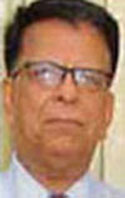Reflections on Social Justice in Islam (Part-1)

By Muhammad Yunus, New Age Islam
(Co-author (Jointly with AshfaqueUllah Syed), Essential Message of Islam, Amana Publications, USA, 2009)
18 July 2017
It is customary in classical Islamic scholarship to write lengthy articles on different aspects of Qur’anic message, and so we have encyclopaedic Tafseers. Even the articles on different aspects of Islamic message appearing on this website tend to be very long bearing in mind the increasingly popular two lines twitter mode of communication of ideas in this era. More importantly, the Qur’an was revealed in relatively small passages to enable its audience to grasp the essence of its message, and it had taken more than 2 decades for completion. Accordingly, it may be more appropriate and reader-friendly to frame short articles in the form of reflections quoting one or a few Qur’anic passages and leaving the reader to reflect over them in the spirit of the following Qur’anic pronouncements:
We have sent down the Book to you (O Muhammad,) with blessings so that the prudent may reflect over its verses and be mindful of it” (38:29)
“Will they not reflect over the Qur’an? - or are their hearts sealed” (47:24)?
We begin our reflection with the following two short passages of the Qur’an that it addressed to the rich elite of Mecca:
i. “Why it is that you are not kind to the orphan, nor urge one another to feed the poor and why do you devour your inheritance with obsessive greed and love wealth with intense passion” (89:17-20).
ii. (Do you know) what is the steep highway of life? “(It is) freeing a slave, or feeding anyone close by during time of famine, or the wretched poor lying in the dust” (90:10-15).”
The Quraysh – the tribe, to which the Prophet belonged, laughed at him and took him for a joke.
Many liberal Muslims, those seeking the easy highway of life, and the terrorists and extremists – who speculate over the ambiguous verses of the Qur’an with nefarious or political motives may simply ignore them or consign them to the antiquity. But it will not take a great deal of reflection to realize that the above questions are no less relevant for this era than they were in the era of revelation. In fact they are bright red lights on the moral pathways of our life today. But we don’t see them or pretend not to see them.
The poor wretch in misery; emaciated children scavenging the garbage bin for food or anything saleable, underage boys engaged in street side garages and heavy duty construction work, starving children in refugee camps and relief shelters stampeding for a loaf of bread, underpaid domestic hands as well as industrial labour with no or nominal social security, no tangible service condition, health benefits and numerous other injustices to humanity in civilisational relativism flank the pathway of life in most third world Muslim countries. But to the vast majority of Muslim onlookers, particularly its rich, intellectual elite and political leadership, these appear just normal. Their singular obsession is to earn more and more, and goon multiplying assets even if it is acquired through fraudulent means or abnormally high commissions made by selling poison and lethal arms or whatever.
We build mosques to get eternal blessings, but leave the adherents of other faiths to feed their poor round the year, or to build free hospitals or shelters of the homeless, to distribute free-meal coupons, to do all kinds of community service that constitutes Zakah in the Qur’anic vocabulary, but we claim to follow the best code of life (din or religion). What an irony!
Itis not surprising that many Muslims especially the liberals, the terrorists, the extremists and the happy-go lucky youth claim that the Qur’an cannot be understood and want to throw it behind their backs without realizing that the problem lies with their souls and not with the Qur’an and it is they and their posterity who pay the price for their apathy against the Qur’an and its biddings and not God Almighty who is beyond any needs.
Muhammad Yunus, a Chemical Engineering graduate from Indian Institute of Technology, and a retired corporate executive has been engaged in an in-depth study of the Qur’an since early 90’s, focusing on its core message. He has co-authored the referred exegetic work, which received the approval of al-Azhar al-Sharif, Cairo in 2002, and following restructuring and refinement was endorsed and authenticated by Dr. KhaledAbou El Fadl of UCLA, and published by Amana Publications, Maryland, USA, 2009.
URL: https://newageislam.com/islamic-ideology/reflections-social-justice-islam-(part/d/111869
